James Holmberg

Curator of Special Collections, the Filson Historical Society, Louisville, Kentucky.
James J. Holmberg writes and lectures on the Lewis and Clark Expedition, with special focus on William Clark and York. In addition to numerous scholarly articles, Holmberg has written the epilogue for the revised edition (2000) of Robert Betts’s biography, In Search of York: The Slave who went to the Pacific with Lewis and Clark, and edited Dear Brother: Letters of William Clark to Jonathan Clark (2002). In July 2003 the University Press of Kentucky published Into the Wilderness: The Lewis and Clark Expedition, the latest addition to the Kentucky Humanities Council’s New Books for New Readers, a series that targets adult literacy programs and English as Second Language class, as well as upper elementary level students.He has served on national, state, and local boards of several Lewis and Clark organizations, and as chair of the Kentucky Lewis and Clark Bicentennial Commission. Mr. Holmberg holds two degrees in history from the University of Louisville. He has been a member of the Filson Historical Society staff since 1982.
Contributions
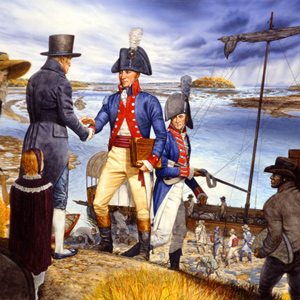

As the days grew shorter and cooler, William Clark must have worn a path to the Louisville landing. The barge (keelboat) could be expected to heave into site at any moment.
Clark, York, and Slavery
by James J. Holmberg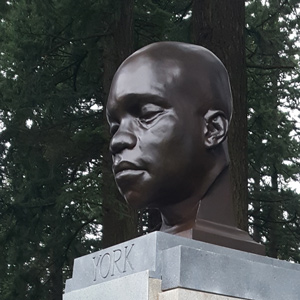

The mistake should never be made that the two men were friends. They were master and slave, owner and property, superior and inferior. As close as that relationship was for the many years and countless miles they were by each other’s side, for all the dangers and hardships they shared their relationship always was based on William as master and York as servant.
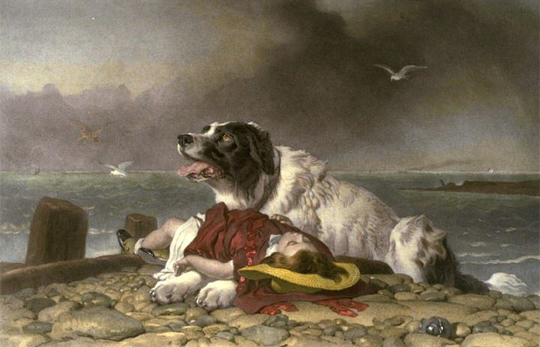

What happened to this famous Newfoundland dog? Did he complete the expedition? Or did he perish somewhere along the Missouri River? Was he with Lewis when at Grinder’s Stand?
Louisville to Fort Massac
by James J. Holmberg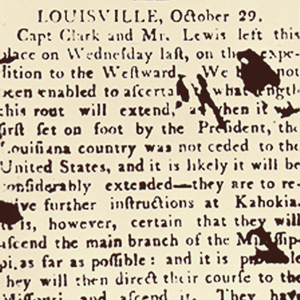

Jonathan Clark mentions parting with the explorers at his son-in-law’s farm in present west Louisville, and Lewis records stopping at the first Kentucky settlement below Louisville. That settlement might have been West Point, at the mouth of Salt River, where John Shields lived.
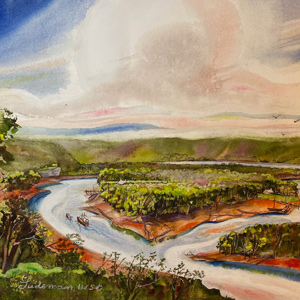

Even though Lewis himself declared the mouth of the River Dubois to be the expedition’s official point of departure, the two and one-half months spent descending the Ohio River were in fact its real beginning.
Experience the Lewis and Clark Trail
The Lewis and Clark Trail Experience—our sister site at lewisandclark.travel—connects the world to people and places on the Lewis and Clark Trail.
Discover More
- The Lewis and Clark Expedition: Day by Day by Gary E. Moulton (University of Nebraska Press, 2018). The story in prose, 14 May 1804–23 September 1806.
- The Lewis and Clark Journals: An American Epic of Discovery (abridged) by Gary E. Moulton (University of Nebraska Press, 2003). Selected journal excerpts, 14 May 1804–23 September 1806.
- The Lewis and Clark Journals. by Gary E. Moulton (University of Nebraska Press, 1983–2001). The complete story in 13 volumes.

